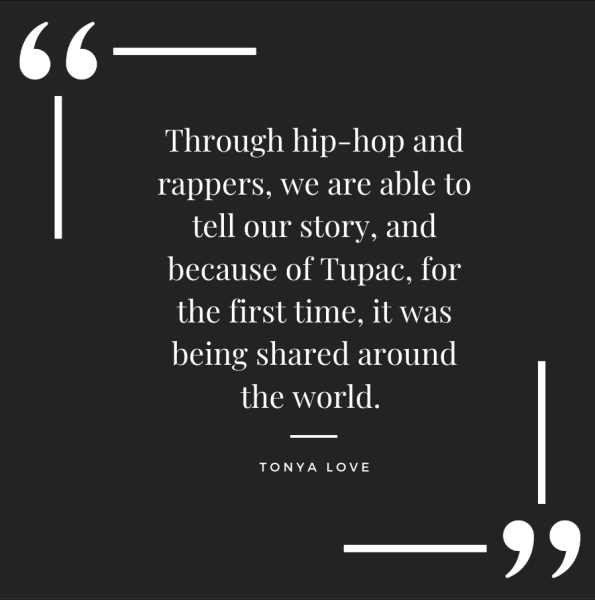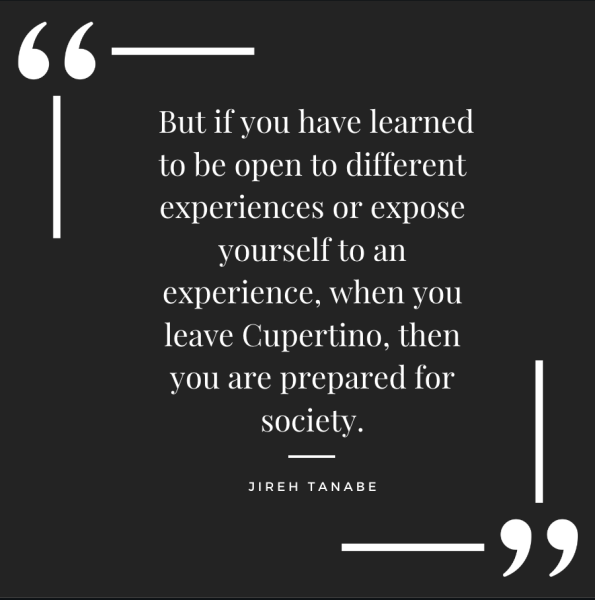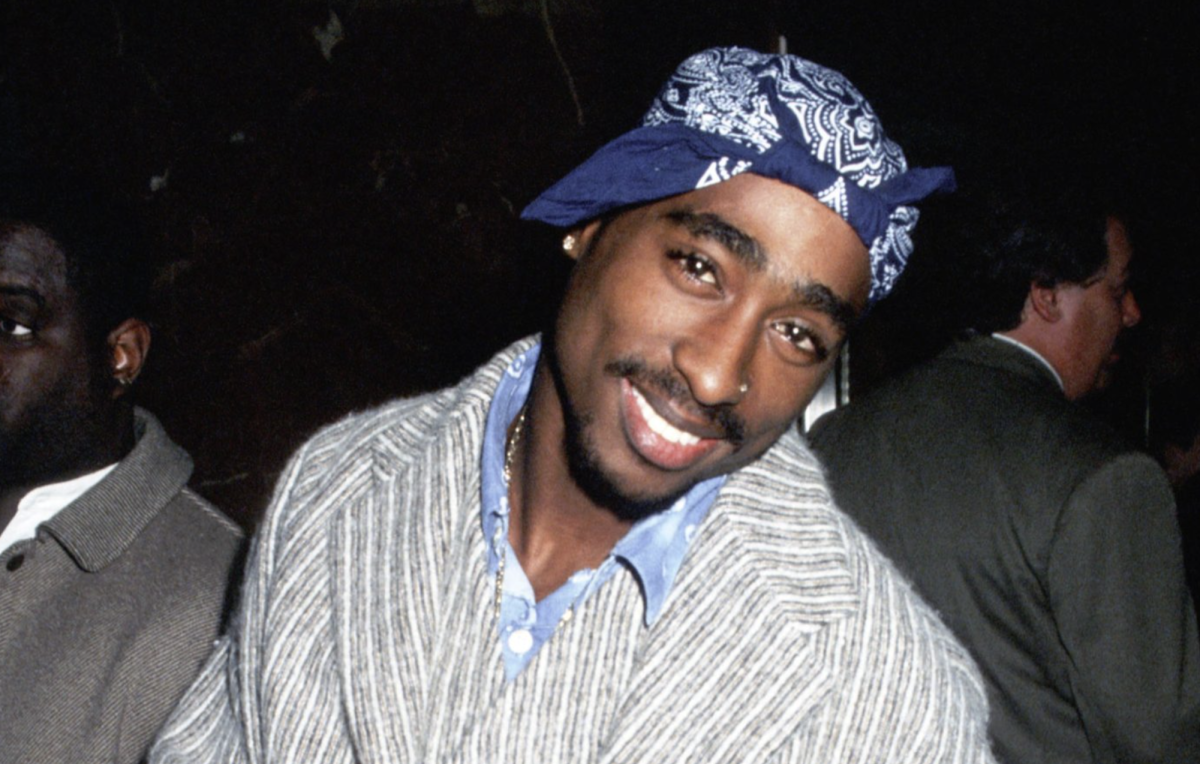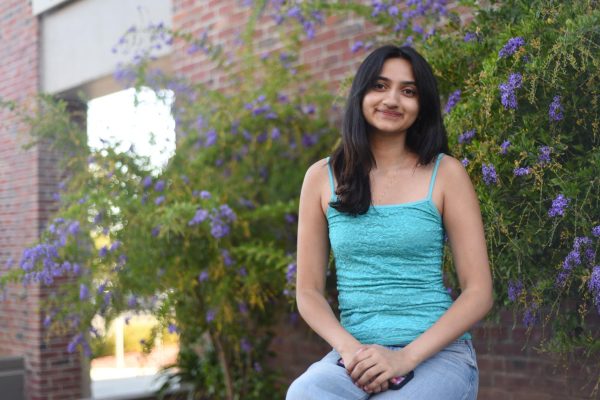A crowd gathered at the corner of MacArthur Boulevard on Friday, Nov 3. to watch as a section of the road was renamed “Tupac Shakur Way.” Hip-hop rapper Tupac Shakur, or 2Pac, rose to fame in the early 1990s with hit albums such as “All Eyez on Me” and “2Pacalypse Now”. The Tupac Amaru Foundation, a foundation created posthumously to honor Tupac’s legacy, was a significant influence in the street being renamed. Oakland District Three Chief of Staff Tonya Love, who was a part of the effort to rename the street, believes that Tupac Shakur Way is a landmark that represents change.
“The Tupac Amaru Shakur Foundation is dedicated to changing aspects of THUG life,” Love said. “The CEO, Sekyiwa Shakur, said that this is not just a street renaming, but it also represents a peace poll, which symbolizes a place where violence should not occur. Other street renamings, like Martin Luther King Jr. Way — even though symbolic of the change that Martin Luther King Jr. brought across the country — are often neglected and placed in the middle of areas that are disenfranchised and discriminated against. These areas have now become dangerous with public safety issues surrounding them. Sekyiwa did not want that to happen to any streets that are named after Tupac. The foundation is going to continue to work with our office to ensure the sign acts as a peace poll to continue with Tupac’s legacy of creating change.”
Tupac’s music often emphasized themes of social justice and corruption through the perspective of minorities. Love, who was raised in an environment where Tupac’s music was very prevalent, says that seeing someone in the media sharing similar life stories drew her towards his music.
“Tupac’s song ‘Dear Mama,’ really influenced me,” Love said. “In the song, he gives homage to his mother, who made a lot of sacrifices in order to make sure that he was able to survive. I grew up in a single-parent home and my mother had to make a lot of sacrifices for me. His music resonated with me a lot even though I didn’t necessarily have the same kind of experiences that Tupac had.”
To Love, Tupac fostered a sense of community through his music, spreading the culture of Black Americans, which Love finds significant. She finds this to be a significant reason for Tupacs popularity, as his music highlighted the experiences of Black Americans.

“African American culture in a way is hip-hop,” Love said. “A quote that I heard from Dave Chappelle is that hip hop is a conversation that young Black people are having with one another that everyone else is hearing or eavesdropping on. Through hip-hop and rappers, we are able to tell our story, and because of Tupac, for the first time, it was being shared around the world. Because of this, everyone else was getting insight into our lives and that representation matters, because when you finally hear yourself or see parts of your life in the media, it’s very meaningful and it helps us feel more pride in ourselves and in our community.”
Tupac’s music talks about diverse life experiences, which some teachers in the English department, such as English teacher Jireh Tanabe, had students examine by analyzing his song lyrics and poetry. Tanabe advocates for this approach, emphasizing its significance in broadening students’ understanding of different cultures and experiences.
“Some kids were shocked that I had chosen something so nonconventional to share with them,” Tanabe said. “But I think that’s part of an education. It is exposing students to experiences in a safe place. When students read Tupac’s lyrics, they are learning something they wouldn’t normally be exposed to. I think that my responsibility as an educator is to introduce students to the things that parents don’t have the luxury of being able to expose them to, all the while teaching them to entertain new ideas.”
Tanabe explains that her choice to focus on Tupac’s work was deliberate, driven by her belief in the profound messages conveyed in his lyrics. One of the songs she teaches to her students is the song, “Changes.” “Changes,” represents the experience of being a Black American man and the need for change in society. Lyrics like “‘It’s time to fight back’ That’s what Huey said / Two shots in the dark, now Huey’s dead / I got love for my brother / But we can never go nowhere unless we share with each other / We gotta start makin’ changes,” symbolizes social injustice. The man Tupac refers to, Huey, is Huey P. Newton, the co-founder of a revolutionary socialist organization known as the Black Panther Party where he fought for the civil rights, equality and empowerment of Black communities. By mentioning Newton and his death, Tupac is critiquing the violence and injustices that Black Americans continue to face. Junior Justin Yaung agrees with Tanabe that Tupac’s music serves as a powerful educational tool.
“A lot of times in literature you’re reading and you’re writing things from one perspective or one lens, usually that of the white male,” Yaung said. “But Tupac offers a different lens. It’s of someone who grew up in poverty. Someone who is a Black man living in America. It’s a different style. His music was made to be consumed as entertainment and to hear and analyze the meaning and the impact behind his words.”
Tupac’s musical legacy extends beyond advocating for Black Americans as he also addressed the struggles of various other minorities, particularly those living in poverty and women. In his 1993 hit “Keep Ya Head Up,” Tupac delves into issues affecting women, especially those in disadvantaged communities, urging respect and empowerment. His juxtaposition of a serious issue and women’s empowerment layered on top of content beats is especially unique and can be seen when he says “And since we all came from a woman / Got our name from a woman and our game from a woman / I wonder why we take from our women / Why we rape our women, do we hate our women?”
Tupac’s impact is evident to fans like senior Tara Bambroo, who has been listening to him since seventh grade. According to Bambroo, Tupac’s ability to address crucial topics, such as women’s rights, in his rap lyrics made him stand out, especially compared to other rappers at the time.
“It was comforting hearing a man saying these things like ‘keep ya head up’ and talking about women’s rights and respecting women,” Bambroo said. “A lot of other rappers’ music is derogatory towards women. It’s not like you can’t listen to it, but hearing them talk about women that way is diminishing, so hearing Tupac talking about them in another light was a new way of seeing women.”
Tanabe agrees with Bambroo’s perspective — she says that Tupac’s ability to address complex social issues through his music, combined with his raw emotional honesty, allows for his music to foster a deeper understanding and empathy among her students toward a variety of experiences.

“Tupac impacted the world because somebody needed to give their voice to experiences that are disenfranchised or marginalized,” Tanabe said. “I think it’s important for us to be exposed to these types of experiences that we don’t normally get because it’s the beginning of building empathy. Without empathy, we can’t become humans who can connect with other people in a real way. If your education taught you only to read and write or to do well academically, then I don’t think you’ve become a functional person in society. But if you have learned to be open to different experiences or expose yourself to an experience, when you leave Cupertino, then you are prepared for society.”











